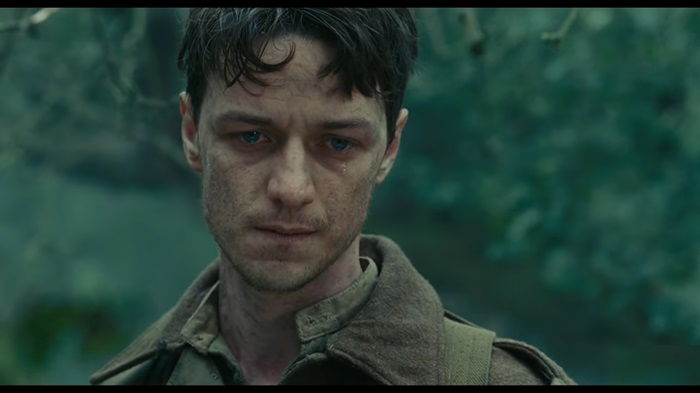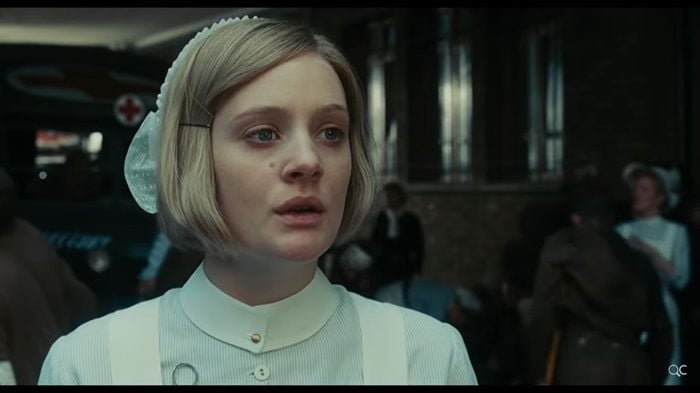Atonement, directed by Joe Wright and based on Ian McEwan's novel of the same name, is a poignant and visually stunning film that explores themes of love, guilt, and redemption. The film is known for its intricate narrative structure and the impact of a single, life-altering lie.
Plot Summary
The narrative of Atonement unfolds in three distinct parts, each providing a unique perspective on the events that transpire. The story begins in 1935 at the Tallis family estate, where the lives of Briony Tallis (played by Saoirse Ronan), her older sister Cecilia (played by Keira Knightley), and Robbie Turner (played by James McAvoy) become entangled in a web of misunderstandings and consequences.
The first part of the film focuses on the love affair between Cecilia and Robbie, a relationship seen through the eyes of the young and imaginative Briony. A tragic misunderstanding occurs when Briony misinterprets a series of events, leading her to falsely accuse Robbie of a crime he did not commit. This accusation not only alters the course of Robbie and Cecilia's lives but sets the stage for the unfolding drama that follows.

The second part of the film thrusts us into the harrowing realities of World War II, where Robbie is serving as a soldier. The war sequences are gripping, portraying the brutality and chaos of the conflict. Despite the distance and the challenges they face, Robbie and Cecilia's love endures through letters, providing a glimmer of hope amidst the devastation.

The third part of Atonement brings us to post-war England, revealing the aftermath of Briony's false accusation and the impact it has had on the lives of those involved. Briony, now portrayed by Vanessa Redgrave in her older years, reflects on the consequences of her actions and the profound guilt she carries with her.
Atonement Ending Explained
As we approach the ending, it's crucial to acknowledge the narrative's unreliable nature. The film consistently challenges the viewer's perception of reality, forcing them to question the accuracy of what they see. This narrative complexity reaches its apex in the final act, where Briony's attempts at atonement come to the forefront.
The climax of the film occurs during a performance of Briony's play, based on her experiences and the people she knows. The play serves as a meta-commentary on the power of storytelling and the role of the author in shaping reality. Through this narrative device, Briony seeks a form of redemption, a way to rewrite the past and rectify the harm she caused.
The revelation at the end of the film is both heartbreaking and thought-provoking. Briony confesses that she altered the events surrounding Cecilia and Robbie's story to give them a different ending. In reality, Robbie died during the war, and Cecilia perished shortly after, their love story cut short by the tragic consequences of Briony's lie.
This revelation reshapes the entire narrative, forcing the audience to reconsider everything they thought they knew about the characters and their fates. It's a powerful and emotionally charged moment, highlighting the profound impact of storytelling on our understanding of truth and the consequences of our actions.
As Briony reflects on her life, we see the toll that guilt has taken on her. The older Briony longs for atonement, grappling with the weight of the lives she altered with her misguided actions. The film becomes a meditation on the nature of forgiveness, the search for redemption, and the enduring consequences of one's choices.
The final scenes of Atonement bring the story full circle, returning to the Tallis family estate. Briony, now an accomplished author, reflects on her journey and the power of fiction to provide a semblance of control over the chaos of reality. The film concludes with Briony's acknowledgment that she can never truly atone for the pain she caused, but through her writing, she attempts to capture the essence of the love story she altered.
In many ways, Atonement is a tragedy, a narrative of love and loss, guilt and redemption. The ending leaves the audience with a mix of emotions — sorrow for the characters whose lives were irrevocably changed, empathy for Briony's internal struggle, and contemplation on the nature of storytelling and its ability to shape our understanding of the world.
The ending of Atonement is a masterful conclusion to a complex and emotionally charged narrative. It challenges our perceptions of truth and fiction, love and loss, and leaves a lasting impression on the viewer.






